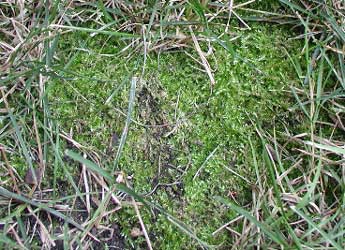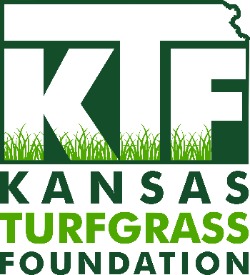Moss

Mosses are small, primitive, leafy, green plants that develop fine, tangled mats over the turf surface. There are more than 13,000 species of mosses, approximately 50 of which can be found in lawns. In general, mosses are not the cause of turf decline, but a symptom of environmental or management levels that are unsuitable for supporting quality turf. Mosses are common in a variety of environments including sites with low soil fertility, poor soil drainage, compacted soils, excessive shade, poor air circulation, high humidity, or a combination of these conditions. Mosses are not always found in low pH soils; some mosses are commonly found on alkaline soils. Thus, altering the soil pH may not eliminate mosses.
Non-Chemical Control
Any cultural practice that encourages proper turf growth and development should be employed. Specifically, maintain soil fertility, provide adequate soil drainage, prune trees to allow more light to reach turf, improve air circulation, reduce soil compaction using core cultivation, avoid excessive irrigation, avoid short mowing, control thatch, and grow turfgrass cultivars best adapted to the setting disrupted by moss.
Eliminating Moss
Moss can be eliminated, at least temporarily, by hand raking when it first appears or by applying ferrous ammonium sulfate or ferric sulfate. Remember, however, that moss will probably reappear unless the environment and/or turf management program is altered.



